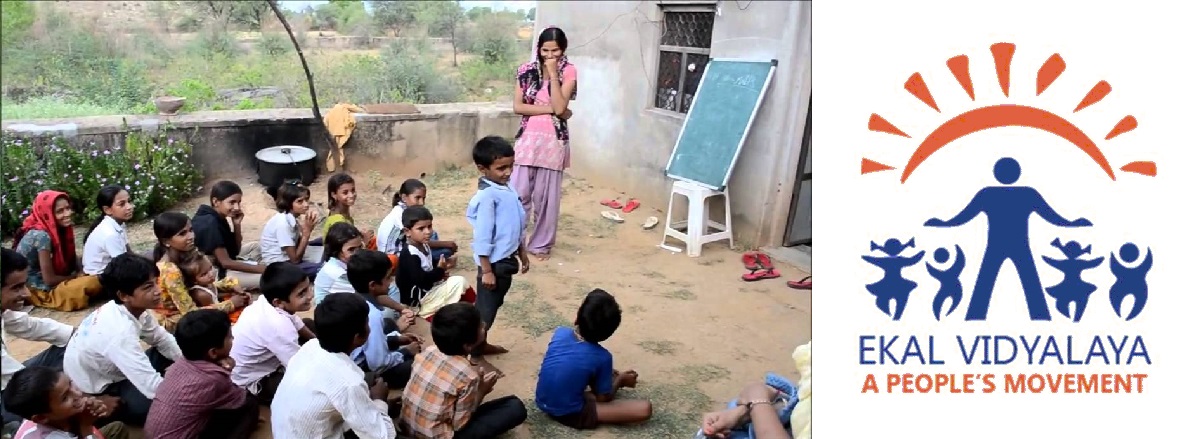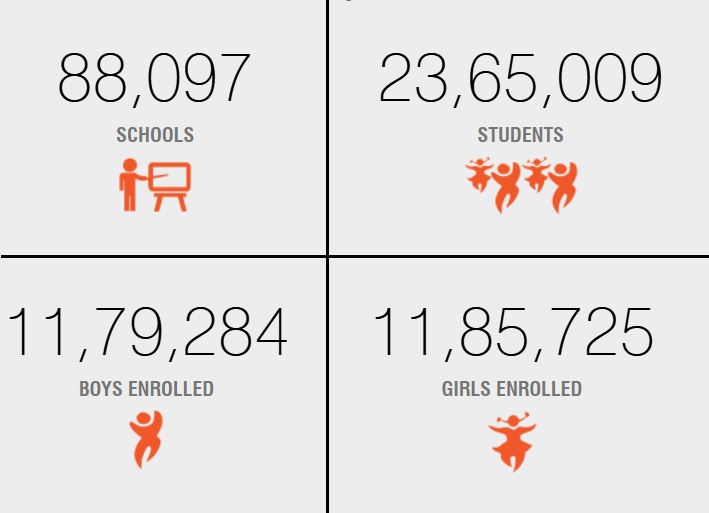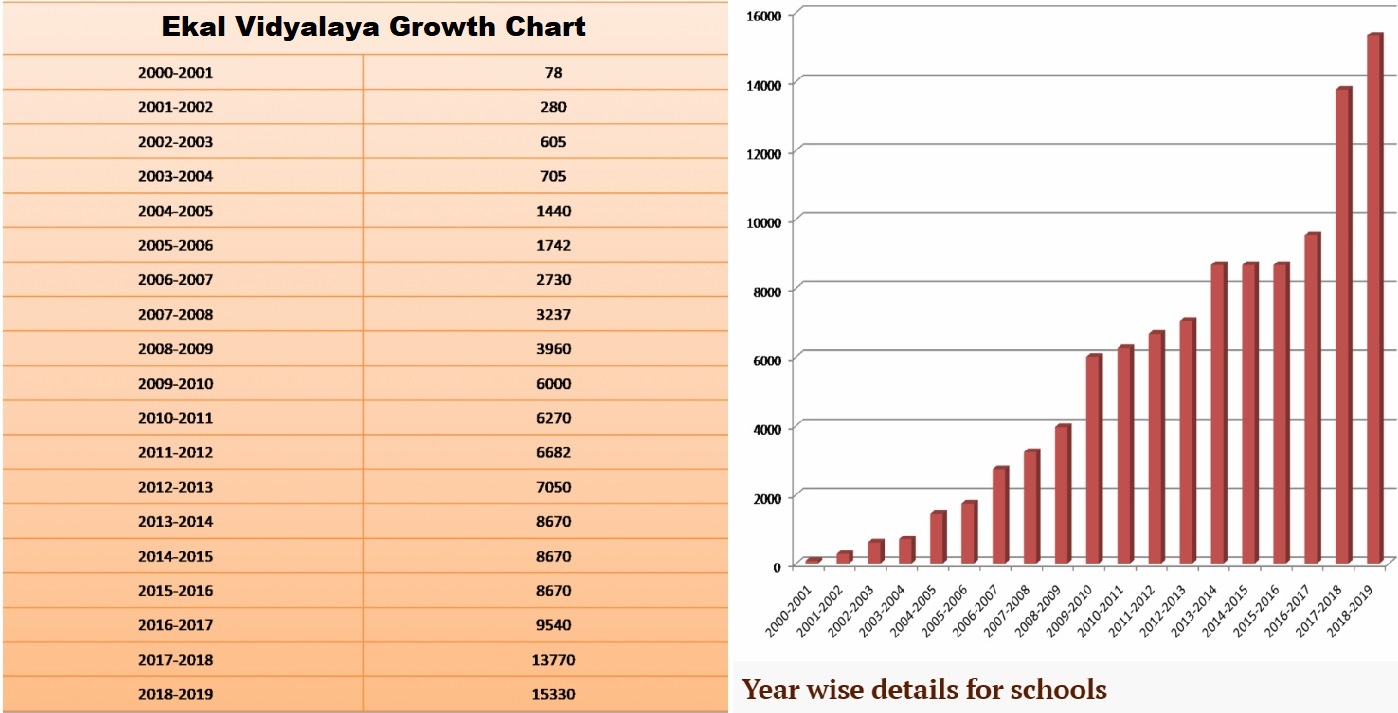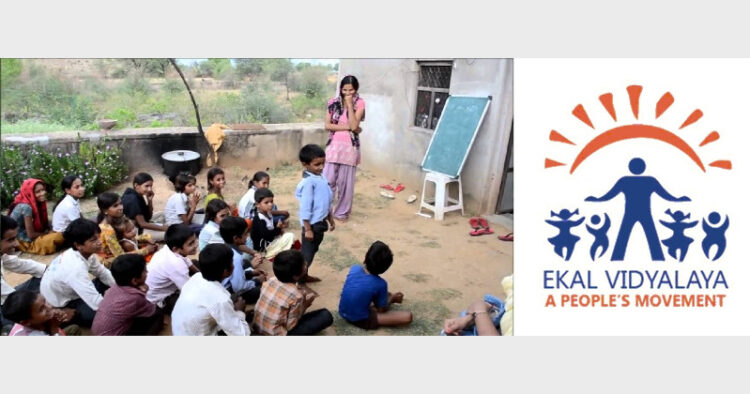The RSS inspired people’s movement, the Ekal Vidyalaya, is steadily moving ahead to reach its target of having presence in 100,000 villages with its non-formal, play-n-learn, One Teacher Schools. As on 30th April 2019, there are 88,097 one-teacher schools in as many villages.

Ekal Vidyalayas started as a movement to impart integrated education & holistic development for children of rural and tribal India. The main activity undertaken in this truuly people’s movement was to run one-teacher schools (known as Ekal Vidyalayas) all over India, in the remotest rural & tribal villages. The aim of the movement was to take the education to every child, wherever the child lived. Today Ekal Vidyalaya schools have been established in many areas of Nepal too.
The gap between the no.of formal schools present and the children who were left out of the schooling system was soo huge in the 1980’s that the 1981 census estimated that only 38% boys & 25% girls in rural India between the age group of 6 to 10 years attended school. In late 1980s i.e 4 decades after independence, children in rural and tribal India did not have many options of getting formal education.
A survey conducted in 1986 revealed that such low schooling in rural and tribal areas could be attributed to several reasons such as lack of interest in education, economic barriers, socio-cultural reasons, gender biases and non-availability of accessible schools. Rammurthi Committee Report on education policy in 1986 played an important role in strategizing and setting directions for Ekal Movement. The committee pointed out that “the rural areas in general and the tribal areas in particular, have suffered in terms of resources, personnel and infrastructure facility. This phenomenon of regional disparities in educational development has acquired a major political dimension in the current Indian scene. It is reflected in the regional and sub-regional movements.

Ekal Vidyalayas in a Nutshell
Based on the clear need and urgency to address the same, Ekal founding volunteers started working with rural and tribal communities as the need indicated in Rammurthi Committee Report and inspired by Swami Vivekananda that if a child cannot come to school than school must reach to the child. Thus started the ‘One Teacher Schools’ movement. With the participation of numerous trusts, individuals, non-profit organizations with equal support and participation of locals in running the schools, this movement has become the largest grassroots level non-governmental education & development movement that operates even in the remotest villages of India and Nepal.
Today the Ekal movement is steadily moving ahead to reach its target of having presence in 100,000 villages with its non-formal, play-n-learn, One Teacher Schools. As on 30th April 2019, there are 88,097 one-teacher schools in as many villages. A total of 2,365,009 students have received schooling through Ekal Vidyalayas, out of which 1,185,725 have been girls and 1,179,284 are boys. The Ekal movement has also seen involvement of more than 6000 volunteers, 35+ field organizations throughout 22 Indian states, and 8 support agencies.
The Ekal movement aims to help eradicate illiteracy from rural and tribal India and Nepal following the philosophy of rural development based on the criteria of equality & inclusiveness across all the sections of the society. Apart from its goal of achieving the national standards of Minimum Level of Learning, Ekal Vidyalaya also seeks to empower the village community for its own self-development through five verticals of Functional Education, Healthcare Education, Development Education, Empowerment Education and Ethics & Value Education.















Comments